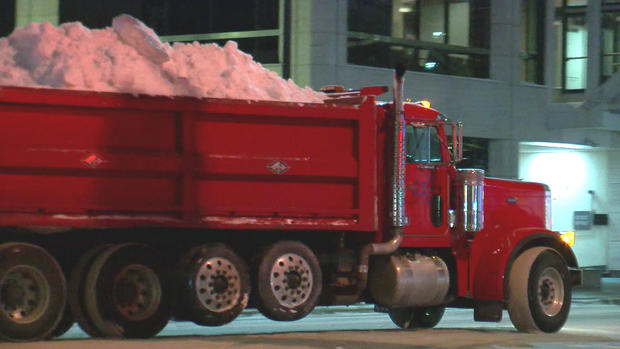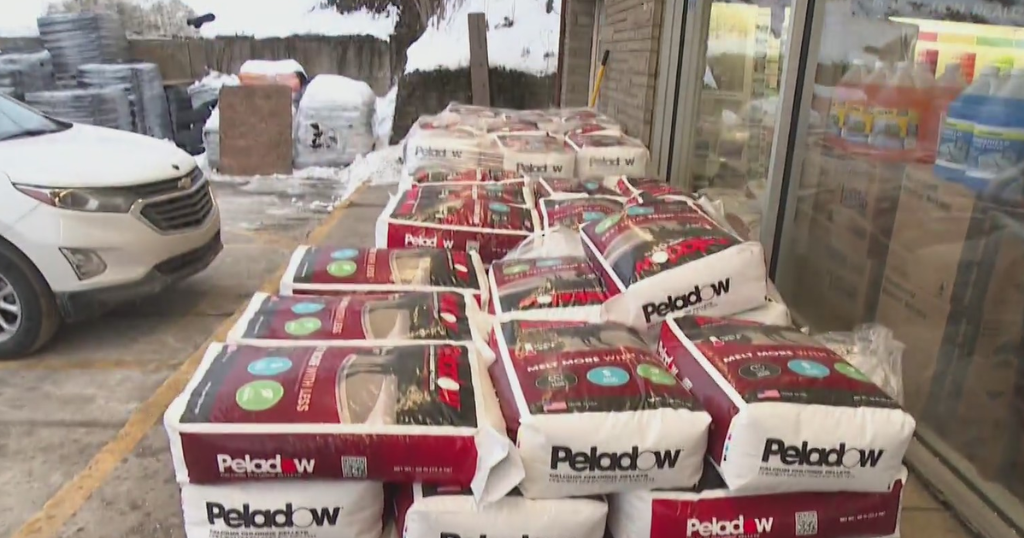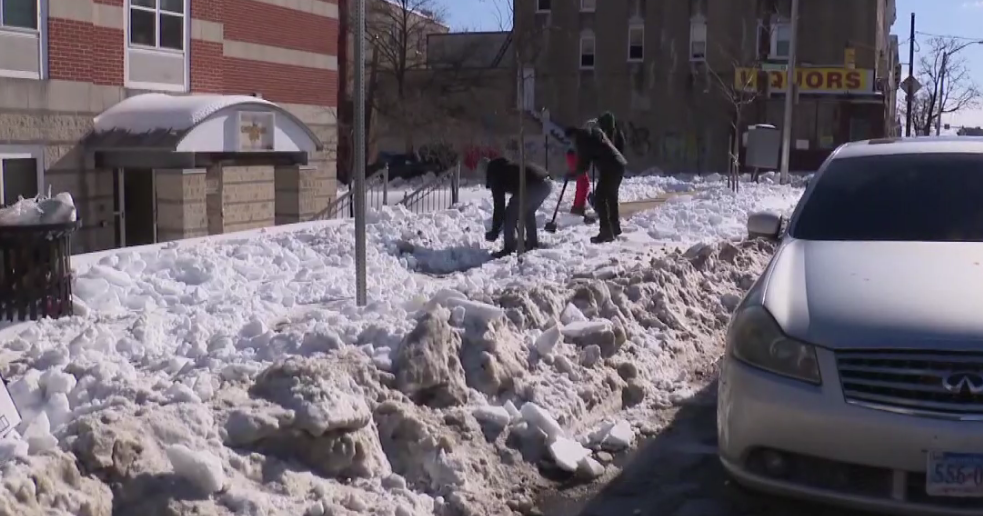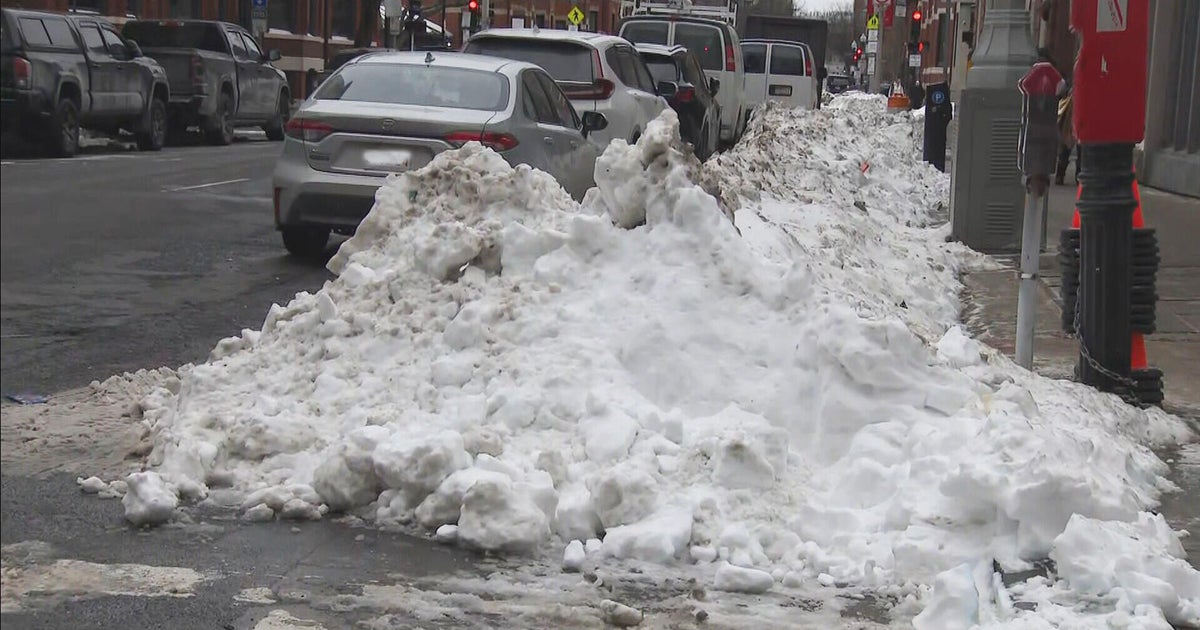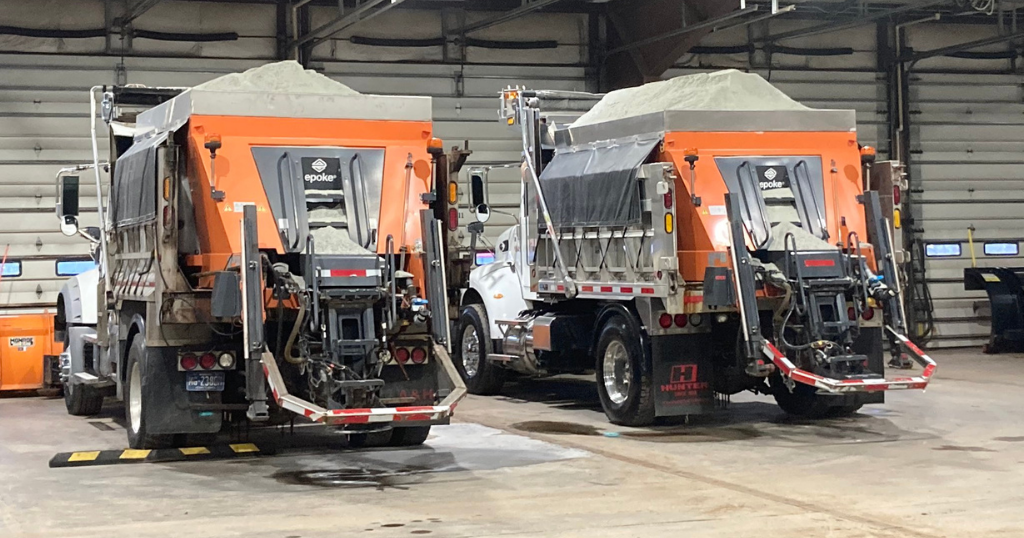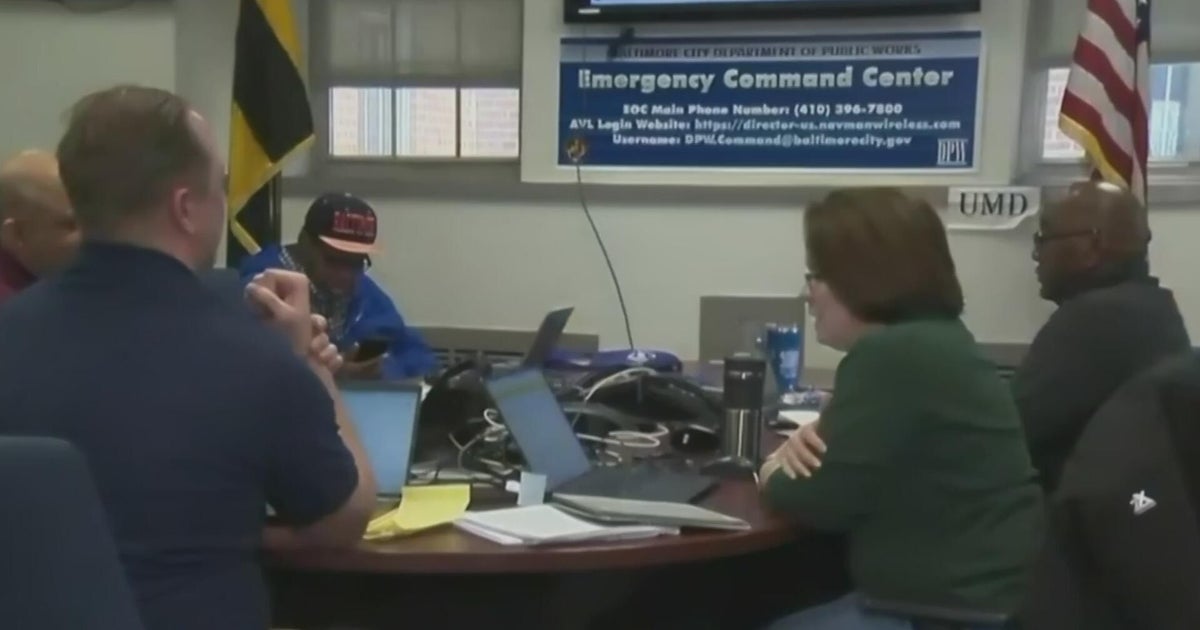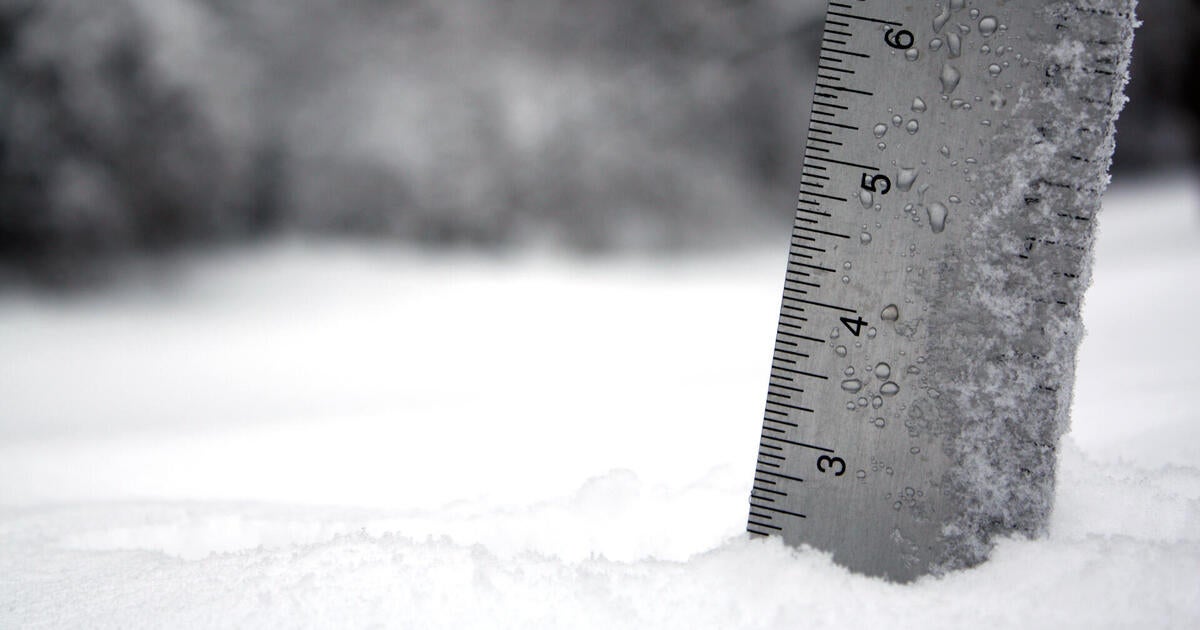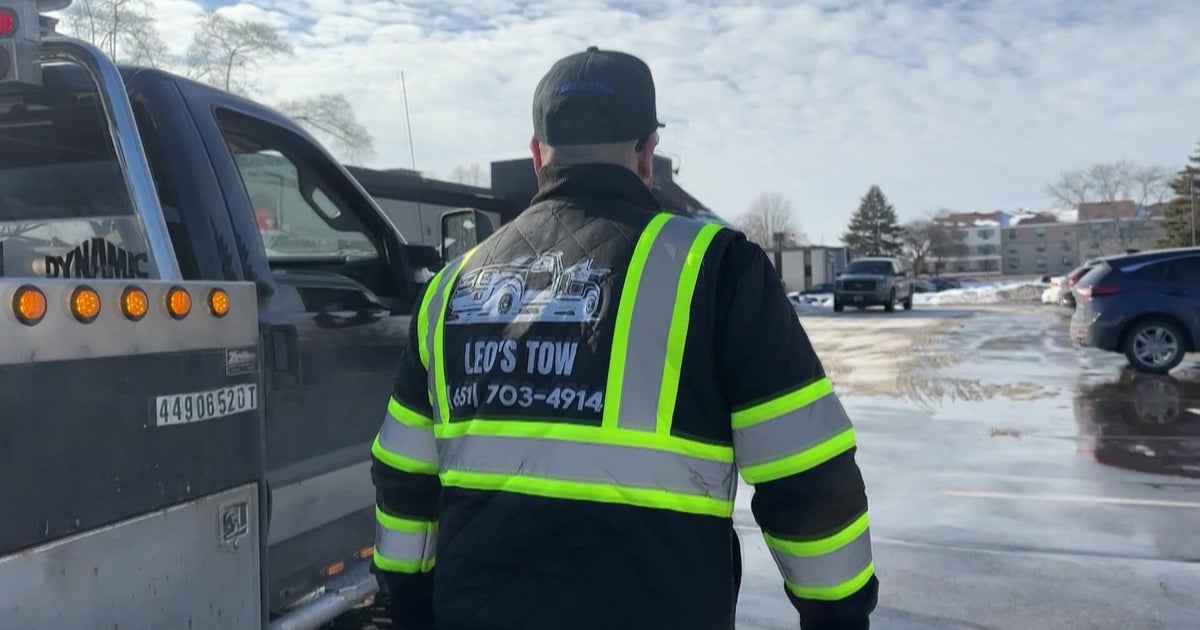How Do Cities Decide What Snow Gets Plowed And What Gets Removed?
MINNEAPOLIS (WCCO) -- Within the next few days, Mother Nature will get rid of most of what she dropped onto us last weekend.
But sometimes cities and business owners can't wait for a melt. Crews will physically remove snow and haul it away.
So where does the snow go? And how do cities decide what gets plowed and what gets removed?
While most are fast asleep, city crews and contractors are clearing a path. Some of the snow piles up while truckloads are hauled off.
How does a city determine which snow gets plowed and which gets removed? WCCO spoke with Mike Kennedy, director of transportation maintenance and repair for Minneapolis Public Works.
"Well, actually we remove very little snow," Kennedy said.
Most snow is just plowed onto sidewalks for businesses and private properties to deal with, but some spots are off limits. Snow is removed to prevent build up near some public transit areas, like bus stations, as well as around city buildings. The City of St. Paul also removes snow around its buildings and in certain public right-of-ways.
Where does the snow that's removed go? St. Paul takes its snow to an undisclosed lot on city property to slowly melt away. It will also break up and spread some of the snow piles out to speed up the process in the spring months.
According to the Minneapolis Downtown Council, property owners and businesses along Nicollet Mall pay to have snow removed. It's then dropped off at a location near Highway 280.
The City of Minneapolis takes its snow to a transfer site where it pays contractors to then dispose of it somewhere else. The transfer site, like St. Paul's dump site, is kept secret. Kennedy said there's two reasons. The first is public safety.
"We just don't want the general public on [the snow pile] because it's dangerous," he said, emphasizing how the plowed snow is filled with salt and other debris from streets.
Another reason to keep the location private is to prevent illegal dumping. Kennedy said lots for dumping snow are highly-valuable commodities. Private contractors or even homeowners might want to take advantage of the location and dump their snow without paying for it.
"Finding a snow dump, hauling it some place can be very, very expensive," Kennedy said. "People still ask, 'Why don't you just throw it in the river?' Well for that reason I was telling you about it before. There's a lot of pollution."
